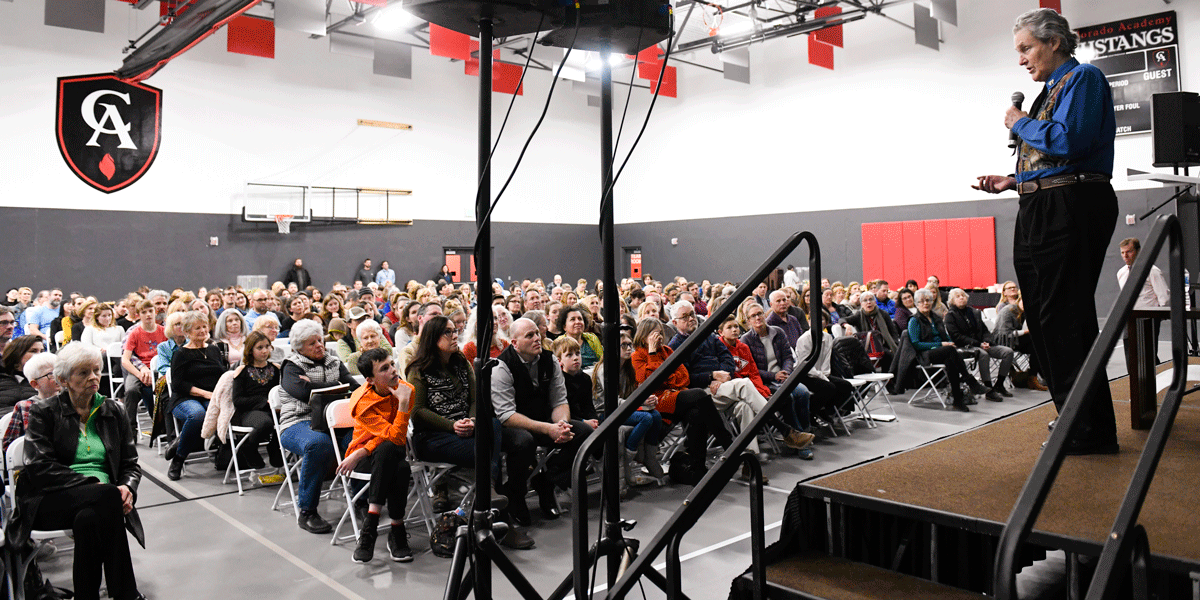Spend an evening with Temple Grandin and you will know three things without a doubt: She is passionate in her opinions, she does not suffer fools gladly, and she has a mile-high sense of humor.
As part of the Colorado Academy SPEAK series, Grandin spoke to a record-setting crowd of nearly 600 people. They came to meet and listen to the autistic woman who was made a household name by the award-winning 2010 HBO film starring Claire Danes—a film that Grandin praised several times during her speech.
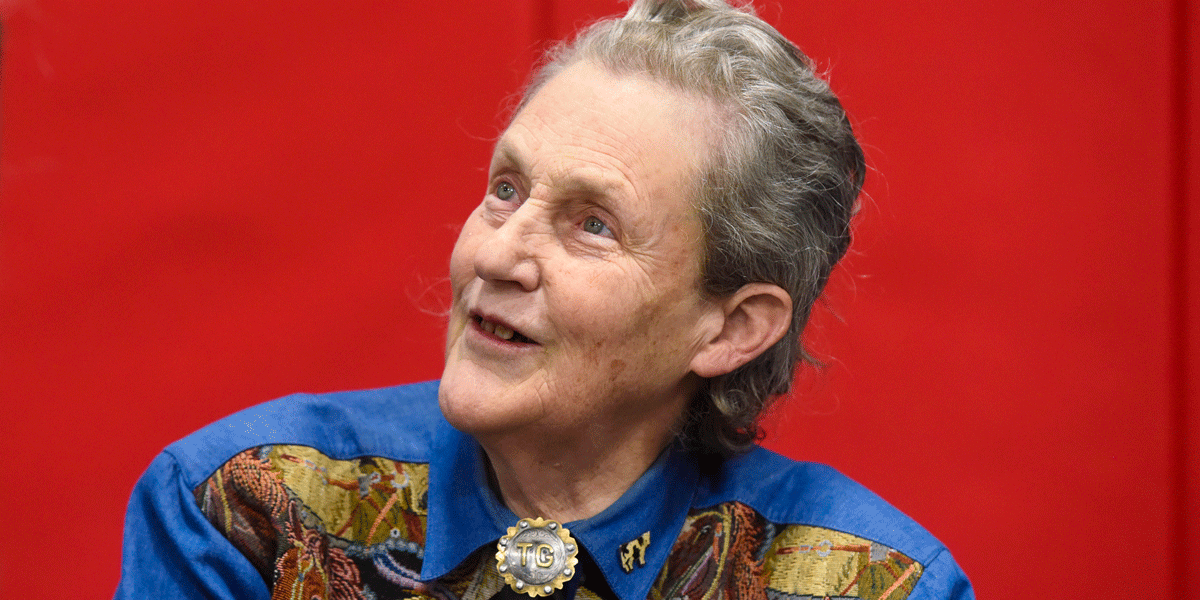
A renowned animal behavior scientist, Grandin, who said she did not speak until the age of two, went on to earn a PhD in animal science from the University of Illinois. She is currently a Professor of Animal Science at Colorado State University. The innovations she designed revolutionized practices for the humane handling of livestock on cattle ranches and slaughterhouses. Time Magazine has named her one of the 100 most influential people in the world.
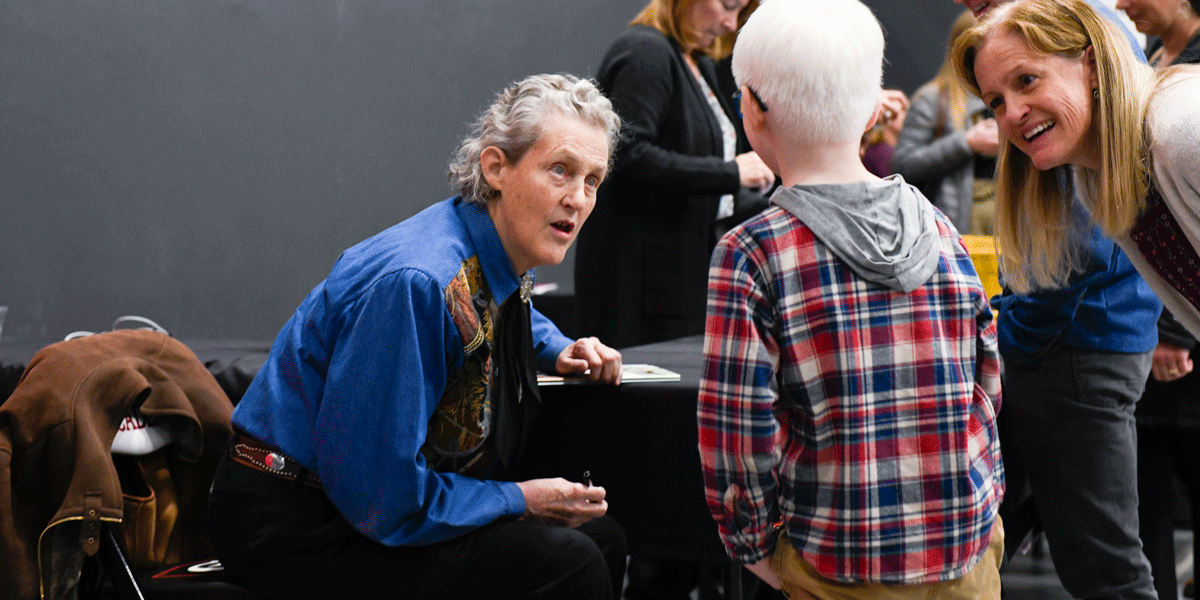
‘The World Needs all kind of Minds’
Grandin’s topic for the evening was “The World Needs all Kinds of Minds,” and her message to the crowd was both simple and complex. “I am a visual thinker,” she said. “I think in pictures not in language.” Her brain, she said, functions like Google images. But other people think differently, she said, identifying the “mathematical thinkers” who might be good at computer programming or music, and the “verbal thinkers” who might be good at facts, writing, and history.
Thinking in pictures led Grandin to her success designing facilities for cattle. In the early 70s, she got down into the chutes to see what cattle were seeing. She could see that a coat on a fence, something flapping in the wind, a hose on the floor, a chain hanging down, a shadow—all items that others might not notice—could cause a herd of cows to balk. She told the attentive crowd that today, half the cattle in North America are handled in systems she designed.
If, like her, you have a different kind of mind, you are not alone, she assured the crowd. She profiled many well-known success stories, including Michelangelo, Beethoven, Einstein, Mozart, Tesla, Edison, Spielberg. “How do we make sure we don’t lose these different minds when they are children?” she asked.
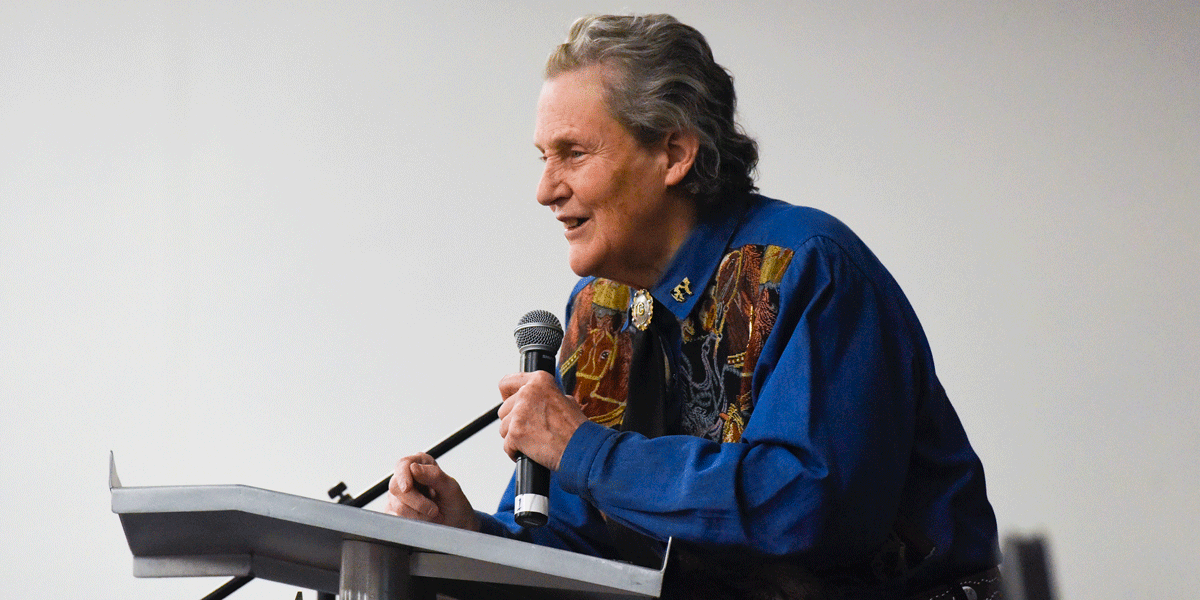
How to help a child on the autism spectrum
Grandin’s belief is that children who may be on the autism spectrum will flourish if they are taught to use their strengths—by learning art, sewing, cooking, musical instruments, woodworking, theater, welding, auto shop, creative writing—classes that are often the first to be canceled when schools experience budget constraints. “I am so pleased to hear that this school [Colorado Academy] is keeping these kinds of classes,” she said.
Based on her own life, Grandin firmly believes in teaching children to use their hands—to make things. With a characteristic twinkle in her eye that often signaled an upcoming joke, she asked the crowd, “Who would have made the first stone spear in cave man days? The guy with the autistic brain, that’s who! Not those yak yaks sitting around the fire!”
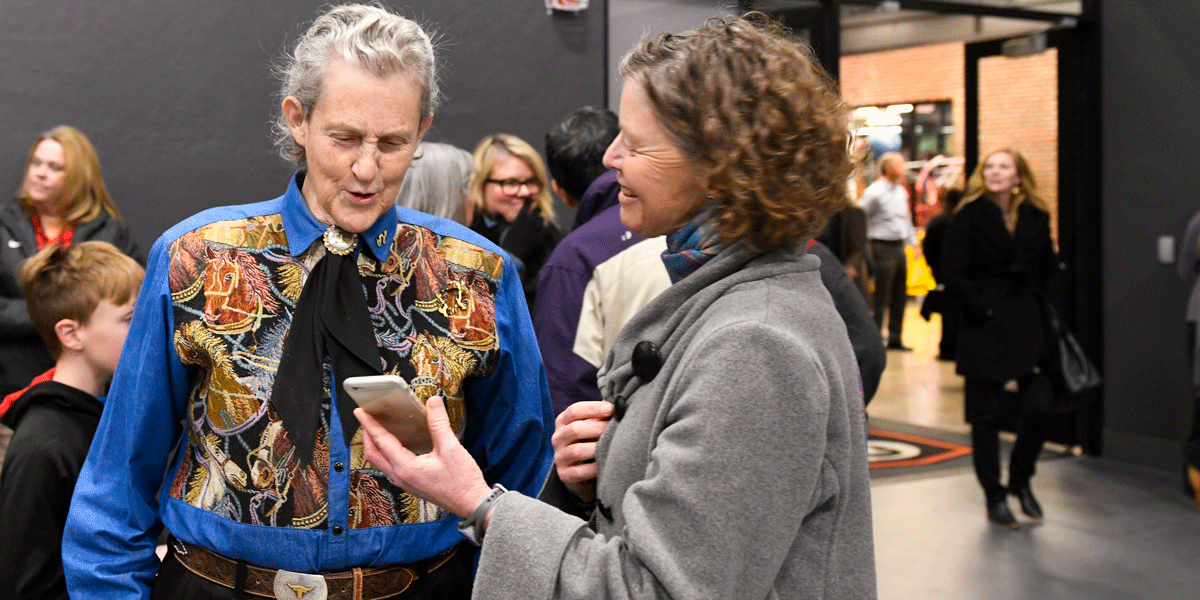
Joking aside, what she said resonated with CA’s Director of Visual and Performing Arts Katy Hills. “The most profound takeaway from Temple Grandin was the reminder of how critical it is to have diverse brains solving problems together,” Hills said. “She also reminded us that we will forever live in a world that requires hands that know how to fix and build things. Educational institutions will continue to stretch our children’s intellectual competence, and we must also integrate the skills of using our hands; for we as a species are designed to be manually competent, as well.”
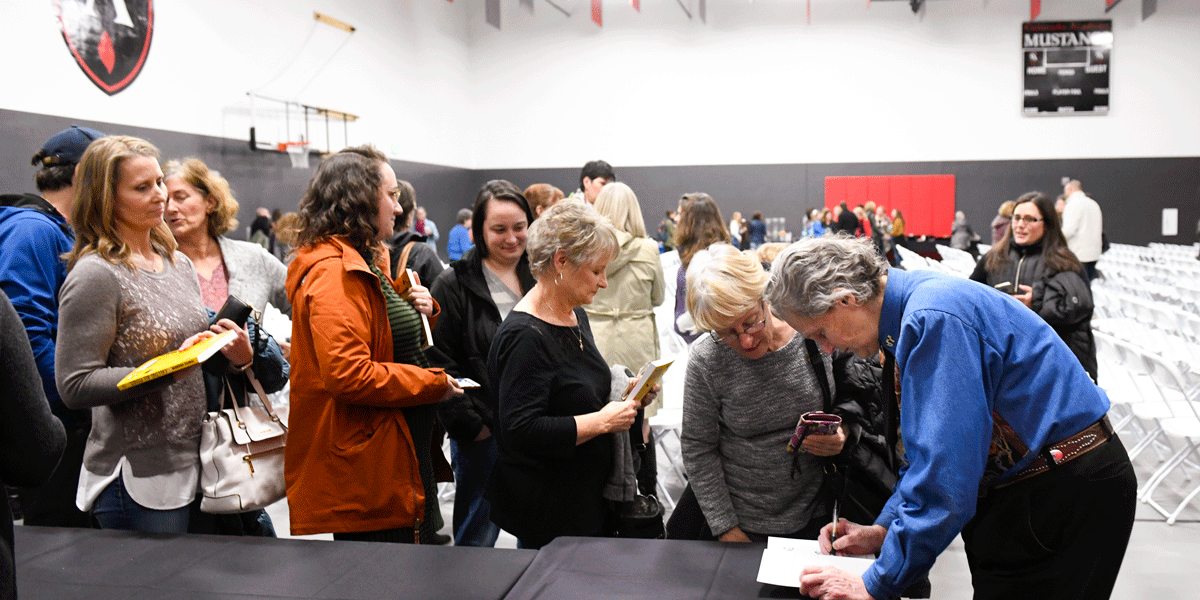
Grandin’s heroes
“What are the common denominators of success for unique minds?” Grandin asked her listeners. In her experience, she succeeded for these reasons:
- Lots of books and learning
- Early exposure to interests with hands-on projects that could lead to a career
- Learning a work ethic at an early age
- Not over-specializing at an early age
- Mentors to help on a career path
- Internships to facilitate entry to a career
Grandin was generous with her time and attention, both before and after her speech. Families and children waited patiently to have a book signed or to just meet her. She has become something of a hero in the autism community, but she has her own heroes. “I worship the astronauts,” she said, showing a slide of Apollo 11 and Neil Armstrong. “The ‘Right Stuff’ rode to the moon. But it was the kids who are sometimes labeled as “geeks” or “nerdy” who built the machines that got them there.”
